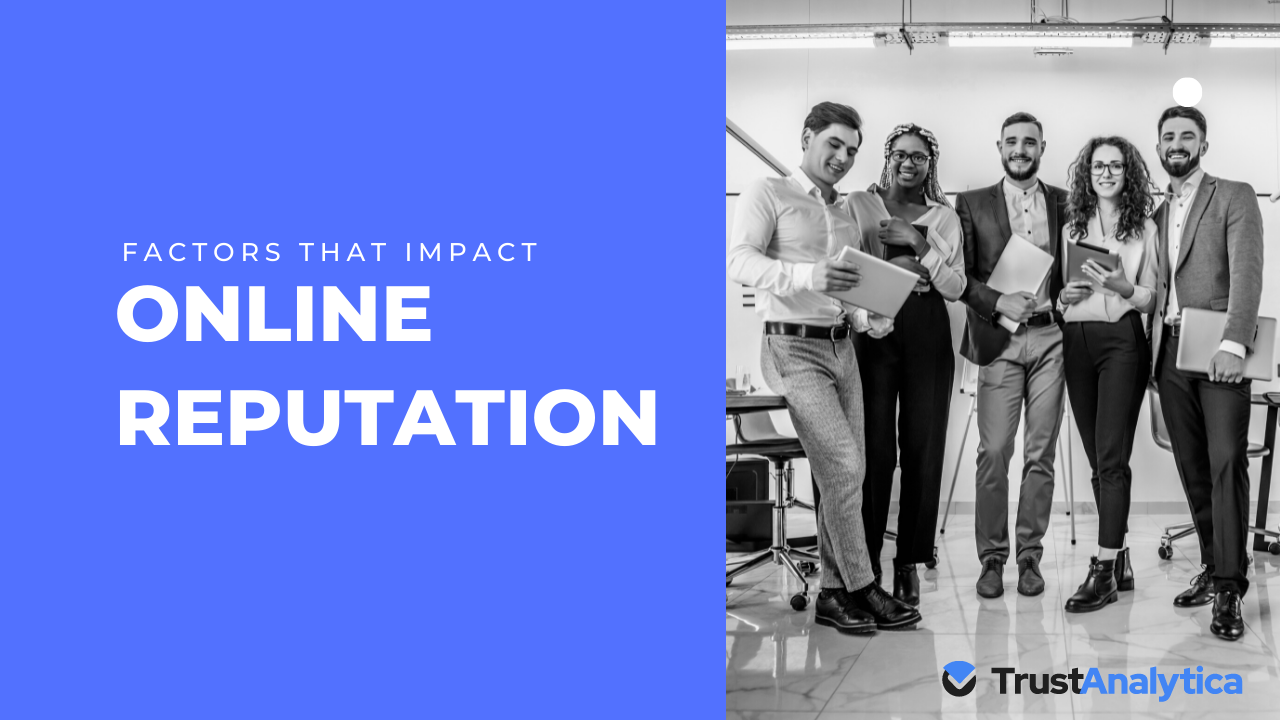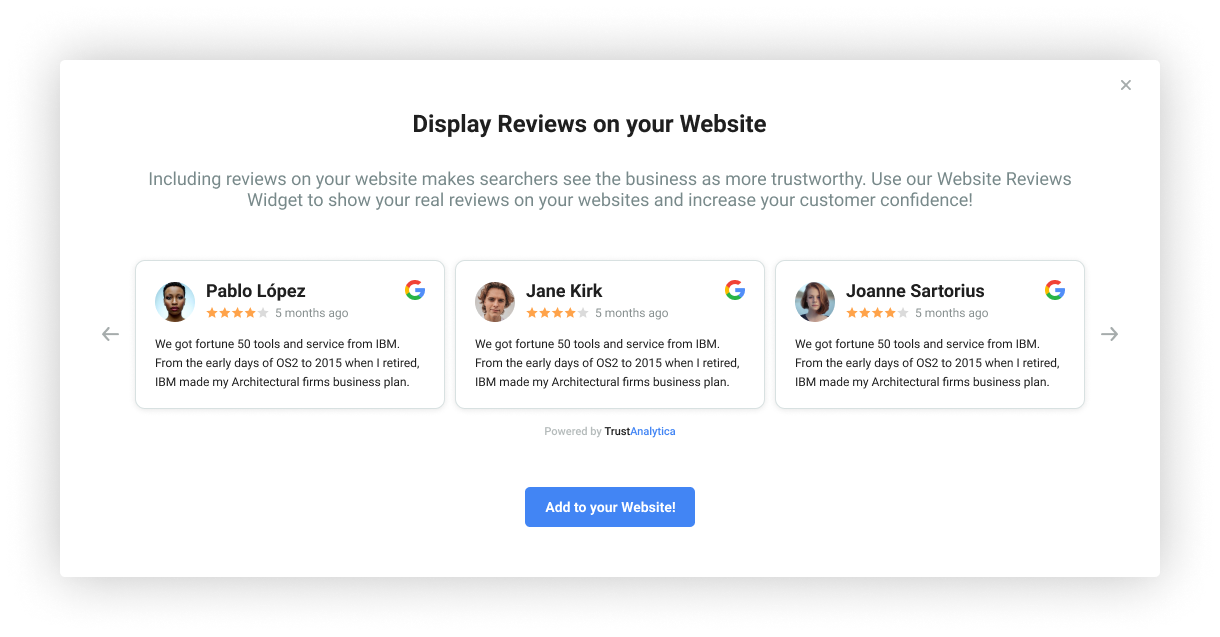Updated: 20th November, 2023 Conducting business online and keeping an online presence on almost all online platforms has become a must for brands and businesses as most people are shopping online with the help of their smart devices. The days of customers mostly browsing physically from one store to another are over. Now, customers prefer […]

Updated: 20th November, 2023
Conducting business online and keeping an online presence on almost all online platforms has become a must for brands and businesses as most people are shopping online with the help of their smart devices. The days of customers mostly browsing physically from one store to another are over. Now, customers prefer to check out the online reputation of a business even before considering making a purchase.
The online reputation of your brain is now more relevant than ever because competitors and naysayers have always had something bad about your brand. That’s why having a solid brand reputation management strategy can pay a lot in the long-term.
Online reputation is the public perception surrounding a brand online. It is what the majority of online users talk about and can see regarding a business or a person of interest.
It is a subjective metric because it essentially does not represent whether a brand is “good” or “bad”. Still, it is potent in terms of driving traffic, engagement, and sales, in and away from brands.
From official brand websites to social media channels, every online channel contributes to a brand’s online reputation.
Online reputation management (ORM) is an active process of monitoring and interfering in online chatter where the subject of engagement is your brand. It is carried out by qualified professionals who are equipped with the necessary tools and knowledge.
It involves identifying locations and then determining the sentiment of the content. It also provides useful insights to managers regarding the development of strategy and deployment of resources.
Today, consumers are not only interested in the quality and quantity of products and services that brands are churning out. They are also concerned with the stance of brands regarding social and societal issues. It is more about hiring a brand than owning and identifying with one.
In the case of a lackluster online reputation, brands cannot build a positive, enviable image to connect with prospects and new customers.
There is no “off” hour on the internet and it is always buzzing with new content. The newer and better content often steals the most highlights and the rest have to take a back seat.
With a solid brand reputation, brands can become visible and connect with more customers and prospects. Both people and online search engines favor brands that follow the best practices.
The point of creating online profiles and connecting with people is to tell them about the products and services and then convince them to hire the brand for their needs. That’s why online metrics measure and base results on every level of involvement by users.
Better brand reputation leads to more engagement which reinforces a brand’s position to be the top priority in the case of need.
Now, let us get to the brass tacks of this blog post, which are the factors that can affect your online brand reputation, and essentially damage its face in the virtual world.
Customer reviews occupy a central place in the ORM segment because it provides public backing to a brand. Research has shown that more than 90% of modern users go through reviews and testimonials before making a purchasing decision.

In the face of marketing material pedaled out by the brand and peer-generated content in the form of feedback, users prefer the latter. That’s why brands need to keep a close eye on reviews emerging from websites, from social media platforms to specialized review sites, such as Yelp, Trust Pilot, and so on.
Overall, the website design has gone from something grand and visually appealing to somber and minimalist but packed with useful features. It is important because users often interact with this aspect of the online brand more than any other thing, from placing orders to leaving and going through reviews and testimonials.
While designing your business website, it is best to keep the needs of users in mind. They should easily find all the necessary information, including pricing, products, services, etc. In addition to this, an intuitive layout and toggles to switch modes and orientation can help a lot.
Social media is always buzzing with chatter, which is the fodder for a brand’s online reputation. A big part of online reputation management is about monitoring the platforms and going through sentimental analysis to keep the tide in a brand’s favor.
Many brands make the mistake of creating profiles on social media and then abandoning them for the most part, save from sporadic posts and information. This is a poor strategy because social media is where all the marketing and advertising happening these days. It would be a missed opportunity for brands and result in acute losses.
As mentioned in the previous section, customer reviews play a central role in the overall persona of a brand. While it is important to collect and highlight positive reviews, the quality of response to those reviews from the brand also counts.
For positive reviews, brands should show gratitude toward reviewers. What is important is to handle negative reviews because they can be tricky. In the past, brands show a cold shoulder toward such issues which is almost as bad as receiving a negative review.
So, in addition to the reviews, brands’ responses to those reviews are one of the major factors that impact online reputation.
Business directories and online listing sites are some of the most trusted platforms for active buyers. These websites enjoy high-quality traffic because the intent of purchase is always the highest.
Brands that are conscious about their online standing should keep an eye on these platforms because they will affect their overall persona.
Again, just like social media platforms, there is no need to create and claim profiles on all the websites, only a handful will suffice. Depending on your business niche and scope, Yelp, Trust Pilot, Trusted Reviews, Google My Business, and more can be apt choices.
Simply mentioning the factors would be a disservice to the readers, whether they are brand owners or professionals in the reputation management line. That’s why we have created a small guide on how to improve on those factors.
This will help them as baking them in the strategy will avert disasters from fully unfolding and brands can save precious resources.
Simply churning out positive content or reacting to negative content is not going to cut it for online brands. It is necessary to have a solid strategy in place that can guide professionals in both times of peace and war.
A strategy can help thwart disasters before they can even brew and ensure that brands’ name and face is insulated from the splashes. Again, having a professional team by your side can spare you a lot of time to spend on other important tasks.
This is the primary focus of online reputation. Brands cannot sit idly while online users crumble the virtual edifice housing them. It is necessary to have a mechanism in place that can track and report back to the base.
Online tools like TrustAnalytica can help brands and their ORM professionals to get insights in real-time and fine-tune their strategies around them.
Both web and social media platforms are the hot sites for all the relevant chatter. In addition to this, relevant online directories also generate a fair share of both positive and negative fodder for online brand reputation.
Bad PR can leave a mess behind that becomes harder to pull out. While it is best to stimulate both owned and sponsored resources to play, collaborating with others can be a great way, especially when the tide is turning against a brand.
Businesses can team up with other businesses or influencers to get the positive word out. This includes putting resources on social media platforms where a majority of users go to get and dispensing information.
Apart from all the tricks and hacks, the primitive form of promoting and keeping an online reputation is to provide the best services or products to clients. When a brand stays true to its commitments and delivers on expectations, customers become brand ambassadors and spread out word of mouth. This also helps prospects to choose the brand that already has a happy customer base.
So, apart from external factors, such as online chatter and competitors, internal factors can also play a crucial role in improving a brand’s facade in the public square.
The best way to assess a brand’s online reputation is to use a tool like TrustAnalytica that can fetch information from all relevant online platforms to deduce quantifiable results.
The main cause of reputational risks is the gradient between the expectations of all the stakeholders of the brand and its ability to deliver on those expectations.
A brand is enjoying a good reputation if the majority of content surrounding its name and products is positive. Both search engines and social media platforms rank the content higher than the negative one. This is a rudimentary, yet effective, way to know whether your brand is solid or not.
Yes, there are many differences between reputation creation and management. In the former, new online brands follow a funnel strategy to create a space for themselves. They connect with users through various channels and try to get positive words.
However, the management phase comes after the creation phase and deals with thwarting threats and averting disasters.
There are two main types of online reputation management: proactive and reactive. In proactive ORM, brands put out positive content and try to connect with as many users as possible. In the reactive ORM, brands put out positive content and try to de-commission negative content to save the brand’s online image.
Whether it is a small brand or a large organization, both need an online reputation but their goals and resources can differ drastically. TrustAnalytica is a trusted name in the online reputation management market with a solid track record. The company can offer reliable brand management services to companies of all sizes, industries, and goals.
The online world is highly intricate with many factors at play. That’s why brands do not exist in a vacuum when they are online. A solid reputation management strategy can help the brands wade through tricky waters without costing engagement and sales.
In this guide, we have identified the five most important factors that can affect the online reputation of brands. So, whether you are a brand owner or a manager, it is necessary to watch out for those factors. We have also shared useful insights on how to improve on those factors. This way, you can have to make your brand stand out from the crowd with no penalties lurking in the shadows.

